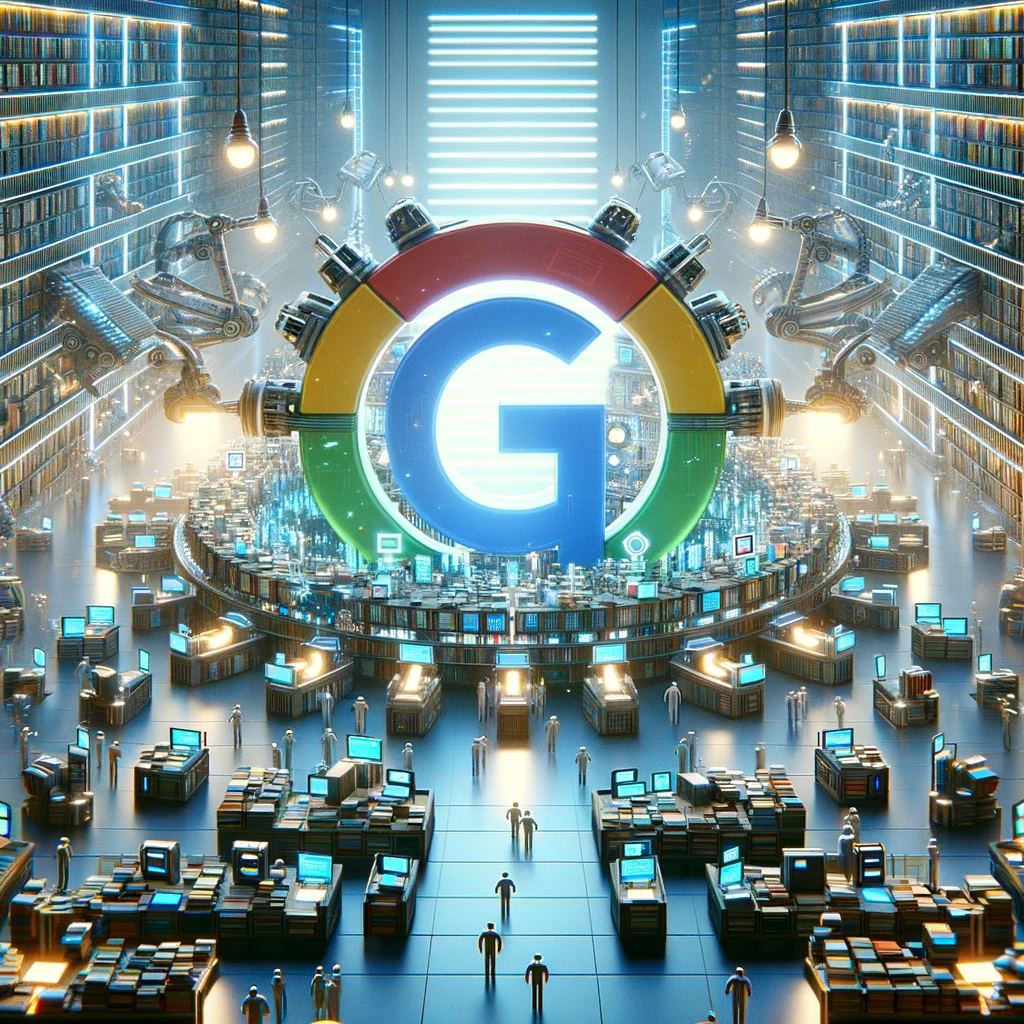Are you tired of feeling lost in the labyrinth of Google’s search results? Do you want to know how to get your website or content recognized by the mighty search engine? If you answered yes to these questions, you’ve come to the right place. In this article, we’ll delve into the world of indexing in Google and demystify the process step by step.
Table of Contents
- What is Google Indexing?
- The Importance of Google Indexing
- How Does Google Indexing Work?
- Crawling: The First Step
- The Indexing Process
- Why Some Pages Aren’t Indexed
- Speeding Up Google Indexing
- Indexing in Google News
- Indexing vs. Ranking
- Monitoring Your Indexing Status
- Conclusion
- FAQs About Google Indexing
What is Google Indexing?
Google Indexing is like the catalog of a massive library. Imagine Google as the librarian, and your website or webpages as the books in the library. When you publish content on the internet, it doesn’t automatically become visible to everyone. Google Indexing is the process by which Google’s bots (also known as spiders or crawlers) discover, read, and store information about your webpages.
In simpler terms, it’s Google’s way of organizing and categorizing the vast amount of information available online. When your content gets indexed, it has a chance to appear in Google’s search results.
The Importance of Google Indexing
Now that you understand what Google Indexing is, let’s talk about why it’s crucial. Imagine you have a brilliant website or a blog with valuable information. If Google doesn’t index your content, it’s like having a hidden gem that nobody can find.
Indexing is the gateway to visibility on the internet. When your webpages are properly indexed, they become searchable, allowing users to discover your content when they type relevant keywords into Google’s search bar. In essence, Google Indexing is the key to unlocking the potential of your online presence.
How Does Google Indexing Work?
Crawling: The First Step
Before a webpage can be indexed, it needs to be discovered. This is where the process of crawling comes into play. Google’s bots continuously scour the internet for new and updated content. When they encounter a new webpage or a change to an existing one, they initiate the crawling process.
Crawling involves analyzing the webpage’s content and structure. The bots follow links within the page to explore other pages on your website. This exploration allows Google to understand the relationships between different webpages, making it easier to index them effectively.
The Indexing Process
Once Google’s bots have crawled your webpage, the information is sent to Google’s index. Think of this index as the giant library catalog we mentioned earlier. It’s a vast database that contains information about billions of webpages.
During the indexing process, Google analyzes the content of your webpage, including text, images, and other media. It also takes note of the keywords and phrases used on the page. This information is then added to the index, making your webpage searchable by relevant keywords.
Why Some Pages Aren’t Indexed
Not all webpages get indexed immediately, and some may not get indexed at all. There are several reasons for this:
- Noindex Tags: Some webpages have a special tag called “noindex” in their HTML code. This tag tells search engines not to index that particular page. It’s commonly used for private or duplicate content.
- Low-Quality Content: Google tends to prioritize high-quality, valuable content. If your webpage lacks informative or engaging material, it may not get indexed.
- Technical Issues: If your website has technical problems or is not easily accessible, Google’s bots may struggle to crawl and index your pages.
Speeding Up Google Indexing
Want to expedite the indexing of your webpages? Here are a few tips:
- Submit a Sitemap: Create an XML sitemap of your website and submit it to Google through Google Search Console. This helps Google’s bots discover your content faster.
- Quality Content: Produce high-quality, original content regularly. Valuable content attracts indexing bots.
- Internal Linking: Use internal links on your website to help bots navigate and discover new content.
Indexing in Google News
If you’re running a news website or publish timely content, you might want your webpages to be indexed in Google News. To achieve this, follow these steps:
- Publish News Content: Ensure your content is news-related and follows Google’s guidelines for news publishers.
- Google News Publisher Center: Submit your website to Google News Publisher Center. This will enhance your chances of being indexed in Google News.
Indexing vs. Ranking
It’s essential to differentiate between indexing and ranking. Indexing is about making your content discoverable by Google, while ranking is about where your content appears in search results.
Just because your webpage is indexed doesn’t mean it will rank high. Google’s ranking algorithms consider various factors like relevance, quality, and user experience. So, even after indexing, you need to work on optimizing your content for better rankings.
Monitoring Your Indexing Status
Curious about how your webpages are doing in terms of indexing? Google Search Console can provide valuable insights. It allows you to see which pages are indexed, identify any indexing issues, and submit new pages for indexing.
Conclusion
In this article, we’ve demystified the world of Google Indexing. We’ve learned that it’s the process by which Google discovers, reads, and stores information about your webpages. Proper indexing is the key to online visibility, and it’s the first step towards achieving a strong online presence.
Now that you’re equipped with knowledge about Google Indexing, it’s time to make the most of it. Remember that quality content, proper SEO practices, and regular monitoring are essential for success in the online world.
FAQs About Google Indexing
1. What is the significance of Google Indexing for my website?
Google Indexing is crucial for your website as it makes your webpages discoverable in Google’s search results. Without indexing, your content remains hidden from potential visitors.
2. How long does it take for Google to index a webpage?
The time it takes for Google to index a webpage can vary. It may take a few days to a few weeks, depending on factors like your website’s authority and how often Google’s bots crawl your site.
3. Can I request Google to index specific webpages?
Yes, you can request Google to index specific webpages using Google Search Console’s “URL Inspection” tool. It allows you to submit individual URLs for indexing.
4. Does indexing guarantee a high ranking in Google’s search results?
No, indexing is just the first step. Achieving a high ranking depends on various factors like content quality, relevance, and user experience. You need to optimize your content for better rankings.
5. Are there any penalties for improper indexing practices?
Yes, Google may penalize websites that engage in improper indexing practices, such as using deceptive techniques or trying to manipulate the indexing process. It’s essential to follow Google’s guidelines and best practices.
https://www.list-bookmarks.win/white-label-seo-tools
https://www.pawn-bookmarks.win/white-label-seo-tools
https://www.phone-bookmarks.win/white-label-seo-programs
https://www.stealth-bookmark.win/white-label-seo-platforms
https://www.toro-bookmarks.win/white-label-seo-tools
https://www.wall-bookmarkings.win/white-label-seo-programs
https://www.web-bookmarks.win/white-label-seo-software
https://www.bookmarkidea.win/white-label-seo-programs
https://www.bookmarks4all.win/white-label-seo-software
https://www.bravobookmarks.win/white-label-seo-platforms




